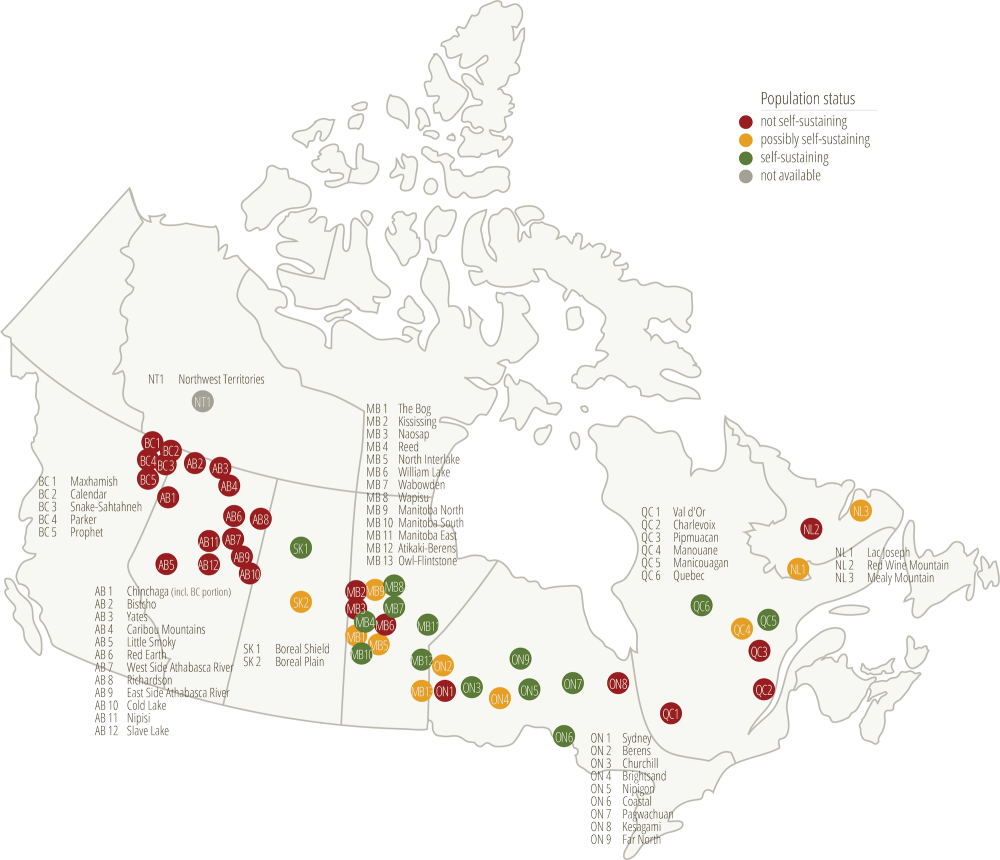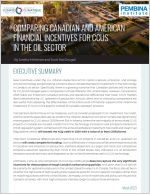
Canada’s boreal woodland caribou is a critical species to conserve, not only for its ecological and cultural value, but also for the benefit of the climate. The habitats caribou depend on for survival — boreal forests and peatlands — also hold massive amounts of carbon that would otherwise be released if the land were developed.
Caribou conservation and the energy industry are intimately linked. Lines cut through the boreal forest ("linear features"), such as seismic lines used to explore for oil, are one of the biggest threats to caribou because they can be used as "highways" by predators. Restoration of linear features and reducing the amount of forest disturbances caused by industrial activities are essential milestones to ensure the survival of caribou.
This report evaluates Canada's progress so far in conserving caribou and their habitat, with a specific lens to the importance of Indigenous-led conservation efforts and policy recommendations that can benefit both caribou and climate.

Key findings
- Only 29% of caribou subpopulations meet Environment and Climate Change Canada's criteria for self-sustaining status, and nearly half of all subpopulations cannot be assessed due to a lack of data.
- Out of the subpopulations with enough data to assess, 73% (22 of 30) are declining.
- Progress on habitat restoration does not dent the overall scale of restoration required — for example, only 1.2% of Alberta's linear features have been restored so far.
- Ongoing habitat destruction, usually through provincial permitting and approvals processes, currently undermine the Species At Risk Act and restoration efforts.
- Much positive progress on caribou conservation in Canada is the direct result of Indigenous-led conservation efforts, often unfolding outside of formally recognized provincial/federal government processes.
- There are many opportunities to advance climate policy in conjunction with caribou conservation priorities and vice versa.
Recommendations
- Prioritize conservation over restoration: Ongoing destruction of boreal caribou habitat is the number one concern for the species’ long-term outlook. Restoration occurs on a long timeframe and is not yet a proven technique to effectively replicate undisturbed habitat; therefore, protection of existing critical habitat must be a top priority to ensure survival of the species in the next 100 years.
- Strengthen legislation, policy, and Indigenous co-governance mechanisms to protect caribou habitat: Legislative loopholes enabling boreal caribou habitat destruction and delays in range planning and implementation must be closed. Legislative or policy mechanisms should also be put in place and used to uphold Indigenous Treaty and inherent rights with respect to protection of boreal caribou habitat. Legislative mechanisms that promote co-governance between federal/provincial governments and Indigenous peoples (e.g., Indigenous Protected and Conserved Areas) should be used to enable collaborative caribou habitat protection.
- Improve data collection and reporting standards: In many cases, a lack of data or a lack of consistency in reporting practices impedes the ability to assess long-term progress at a national scale. Consistent federal data reporting standards and increased investment in data collection for data-deficient subpopulations are urgently needed.
- Allocate existing restoration efforts where they will have the most impact and refine restoration evaluation standards: Restoration work can be of greater benefit to boreal caribou if focused in the areas that have the greatest habitat benefits (e.g., linear features connected to peatlands that female boreal caribou use during calving seasons). Restored habitat must also not be considered as equivalent to “undisturbed” habitat, as restoration is not yet proven to provide the same benefits to boreal caribou long-term.


